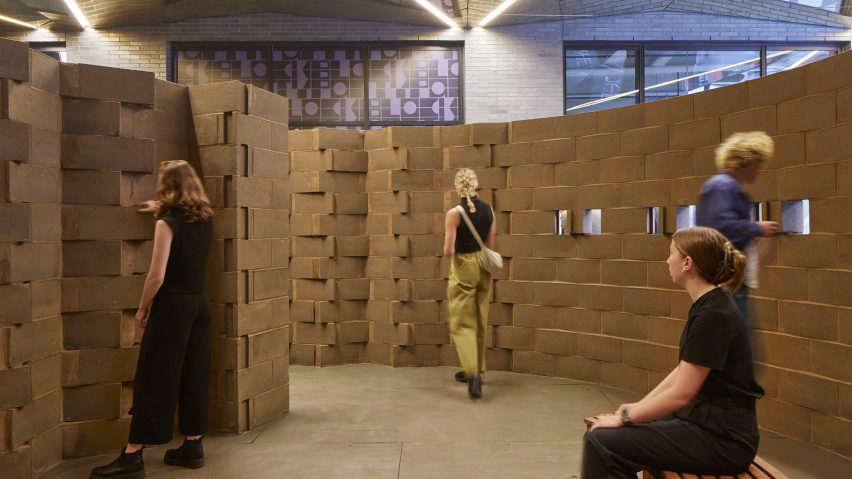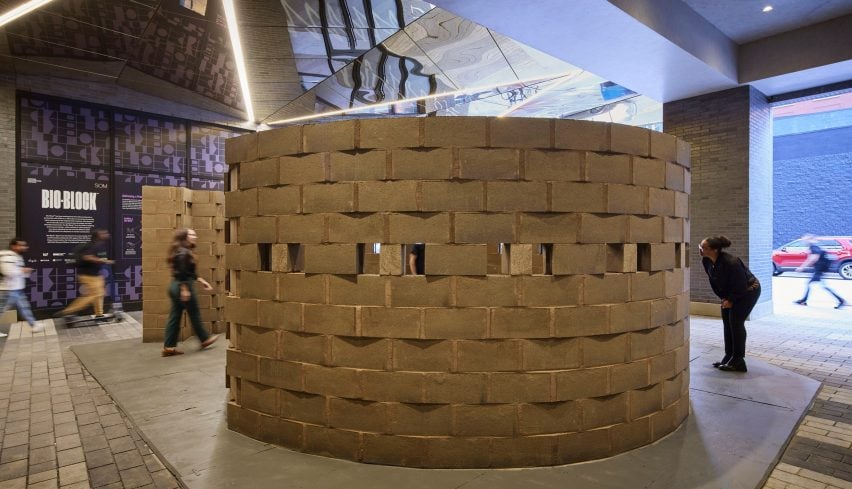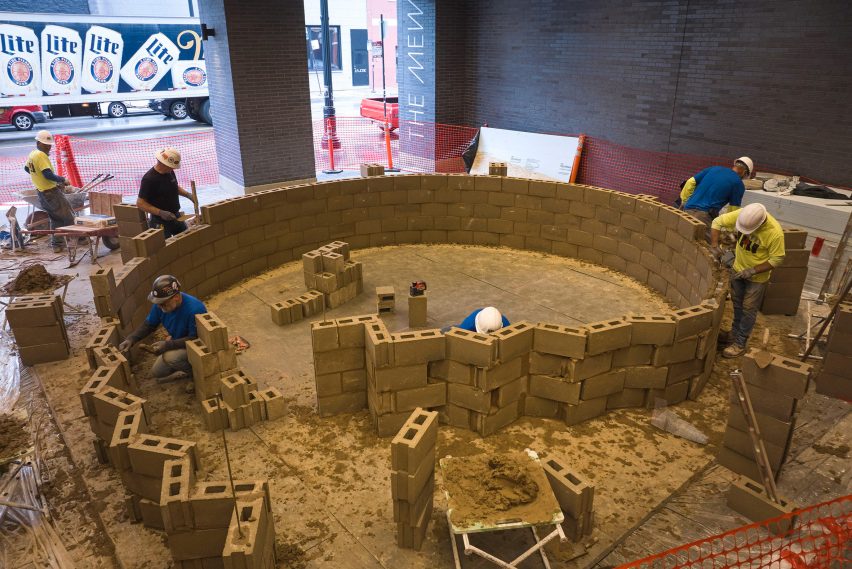
SOM creates spiral of algae bricks for Chicago Architecture Biennial installation
In collaboration with Colorado-based Prometheus Materials, architecture studio SOM has created a spiral installation made of bio-bricks for the 2023 Chicago Architecture Biennial.
The installation was made using the Bio-Block building material developed by Colorado-based material company Prometheus Materials, a masonry block created from micro-algae and aggregate that offers an alternative to standard concrete.
"Extending our history of material research and prototyping at the Chicago Architecture Biennial, Bio-Block Spiral introduces our collaboration with Prometheus Materials to develop an algae-based, zero-carbon alternative to the concrete blocks found everywhere in our buildings and cities," said SOM design partner Scott Duncan.
The only installation located in the Fulton Market District for this year's biennial, it was installed underneath a covered walkway at The Mews building in Downtown Chicago.

"Echoing the shell-like material composition of the bio-cement, [we] conceived of a spiralling form that invites Fulton Market visitors to step off the busy street and explore the installation," said the studio.
The entrance to the spiral faces inwards towards the site's walkway, while at its centre, several blocks were rotated to create apertures that look out onto the site's surroundings.
It was assembled using a conventional stacked masonry technique carried out by the International Masonry Institute and J&E Duff.
The ends of the spiral, which form the entrance and the interior wall, were constructed using an offset arrangement that forms undulating walls.

"Pleated ends demonstrate the versatility of the block form and improve the structural stiffness of the installation, allowing the Spiral to be self-supported," said the team.
Prometheus Materials was established in 2021 by professors at the University of Colorado at Boulder.
As of 2022, the material was going through testing to meet the American Society for Testing and Materials (ASTM) standards and today it is in the "midst of ongoing performance testing". The team hopes it can be a direct substitute for Concrete Masonry Units (CMUs).
The process eliminates the use of portland cement, which is the most common type of cement used around the world. Made largely of crushed and burned limestone, it, along with concrete, contributes to about 8% of the world's carbon dioxide (CO2) emissions.

"This project demonstrates how product development, design, and construction can come together to address the climate crisis in a meaningful way," said Prometheus Materials president Loren Burnett.
Dezeen recently rounded up seven alternatives to bricks made of reclaimed waste and materials. Well-known architecture practices have been working to use more of these materials in construction. For example, UK-based studio Grimshaw recently worked with the University of East London to develop a brick made of sugarcane.
The 2023 Chicago Architecture Biennal features work from more than 70 global architects, artists and designers. This year's theme, This Is a Rehearsal, "investigates how architecture is integral to collective care and the improvement of urban life."
The photography is by Dave Burk courtesy of SOM.
Chicago Architecture Biennial 2023 runs from 21 September 2023 to 11 February 2024. See Dezeen Events Guide for an up-to-date list of architecture and design events taking place around the world.